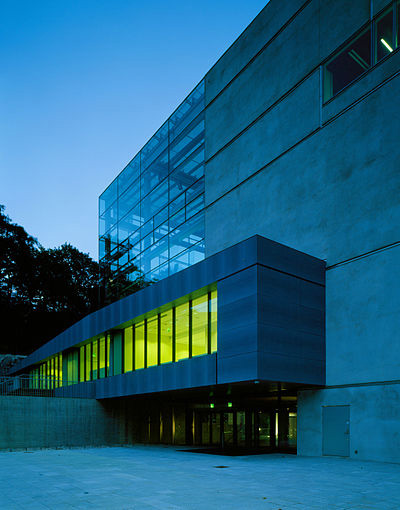|
|
Team
|

|
|
Cameron Browne
Principal Investigator [CV]
cameron.browne@maastrichtuniversity.nl
Cameron
Browne is an Associate Professor at
Maastricht University's Department of Data
Science and Knowledge Engineering (DKE),
where he is running the €2m ERC-funded Digital Ludeme
Project over the next five years.
Cameron received his PhD from the
Queensland University of Technology (QUT)
in 2009, winning a Dean’s Award for
Outstanding Thesis and producing the
world's first published computer-generated
games. He is the author of the books Hex
Strategy, Connection Games
and Evolutionary Game Design,
which won the 2012 GECCO “Humies” award
for human-competitive results in
evolutionary computation. He is a Section
Editor of the IEEE Transactions on
Games and the International
Computer Games Association (ICGA)
journal, and is the founder and
Editor-in-Chief of the Game &
Puzzle Design journal. Cameron is
the designer and technical lead of the
Ludii general game system.
|
 |
|
Eric Piette
Postdoctoral Research Assistant [URL]
eric.piette@maastrichtuniversity.nl
Eric
Piette is a Postdoctoral Research
Assistant at Maastricht University's
Department of Data Science and Knowledge
Engineering (DKE). In his doctoral thesis
defended at the University of Artois in
2016, Eric paved the way for a new
approach for combining Monte Carlo methods
and a Stochastic Constraint-based Approach
to General Game Playing, winning the AI
2017 Thesis award of the AFIA and the 2016
General Game Playing competition organised
by Stanford University. His last paper
published in IJCAI-2017, which established
a tight relationship between symmetry
detection in Constraint Satisfaction
Problems and transposition detection in
GGP, was selected as one of three
finalists for the distinguished paper
award out of 2,540 submitted papers. Eric
is an active member of the French working
group for Game AI.
|
 |
|
Matthew Stephenson
Postdoctoral Research Assistant [URL]
matthew.stephenson@maastrichtuniversity.nl
Matthew
Stephenson is a Postdoctoral Research
Assistant at Maastricht University's
Department of Data Science and Knowledge
Engineering (DKE). Matthew received a PhD
from the Research School of Computer
Science of the Australian National
University (ANU). His Thesis focussed on
procedural content generation techniques
for physics-based game environments,
particularly for the popular video game
Angry Birds and the general video game AI
(GVGAI) framework. His primary research
interests and publications centre around
various topics in AI for games, including
general video game AI, procedural content
generation, agent development,
computational complexity analysis and
deceptive game design.
|
 |
|
Dennis Soemers
PhD Candidate [URL]
dennis.soemers@maastrichtuniversity.nl
Dennis
Soemers received the BSc degree in
Knowledge Engineering in 2014, and the MSc
degree in Artificial Intelligence in 2016,
both from the Department of Data Science
and Knowledge Engineering, Maastricht
University. In 2016, he placed first in
the Single-Player Planning track of the
General Video Game AI competition, and
second in the Two-Player Planning track.
He worked for two years in the AI Lab of
Vrije Universiteit Brussel on the C-CURE:
Cost-Sensitive Dynamic User Authentication
with Reinforcement Learning project. His
research interests include Search,
Planning and Reinforcement Learning
algorithms.
|
 |
|
Walter Crist
Postdoctoral Research Assistant
(Cultural Stream) [URL]
walter.crist@maastrichtuniversity.nl
Walter Crist received his
PhD in Anthropology from the School of Human
Evolution and Social Change at Arizona
State University. His doctoral thesis used
quantitative methods to demonstrate
changes in the social context of play in
Bronze Age Cyprus (2500-1050 BCE) as
social complexity increased. His research
focus is on how people play games in
response to social change, and how the
social element of play facilitates
cultural and economic exchanges. He is the
lead author of Ancient Egyptians at
Play: Board Games across Borders,
as well as other articles discussing the
social aspects of play in the Near East,
Mediterranean, and Caucasus. Recently, his
research on Mesopotamian games in Bronze
Age Azerbaijan was featured in The
New Yorker.
|
Advisory
Panel
Yngvi
Björnsson
Reykjavic University (Game AI and Machine
Learning)
Tristan
Cazenave
Université Paris-Dauphine (Game AI and Machine
Learning)
Véronique
Dasen
Fribourg University (Classical Antiquity), ERC
Advanced Grant (2017): Locus Ludi
Alex de
Voogt
American Museum of Natural History (Curator)
Thierry
Depaulis
Historian (Board, card and dice game specialist)
Eddie
Duggan
University of Suffolk (Board game historian)
Irving
Finkel
British Museum (Curator)
Fred Horn
Historian and game/puzzle designer
Simon
Lucas
Queen Mary University of London (Game AI and
Machine Learning)
João Pedro
Neto
University of Lisbon (Computational Game Analysis)
David
Parlett
Historian and author (Oxford History of Board
Games, Oxford History of Card Games)
Ulrich
Schädler (ERC Locus Ludi)
Swiss Museum of Games (Director), Fribourg
University (Classical Antiquity), Board Game
Studies (President)
Jorge Nuno
Silva
University of Lisbon (History of Mathematics)
Stephen
Tavener
Scat Ltd, UK (Game designer, Java specialist,
System design consultant)
Jaap van
den Herik
University of Leiden (Search and AI)
Mark Winands
Maastricht University (Search and AI)
Collaborations

Locus Ludi: The
Cultural Fabric of Play and Games in Classical
Antiquity
ERC Advanced Grant
Véronique Dasen (PI), Fribourg
University
Ulrich Schädler, Fribourg
University

Past At Play Lab
Leiden University
Sybille Lammes (PI), New Media and
Digital Culture
Angus Mol, New Media and Digital Culture
Aris Politopolous, New Media and Digital
Culture

Världskulturmuseet
(Museum of World Culture)
Gothenberg, Sweden
|
|









